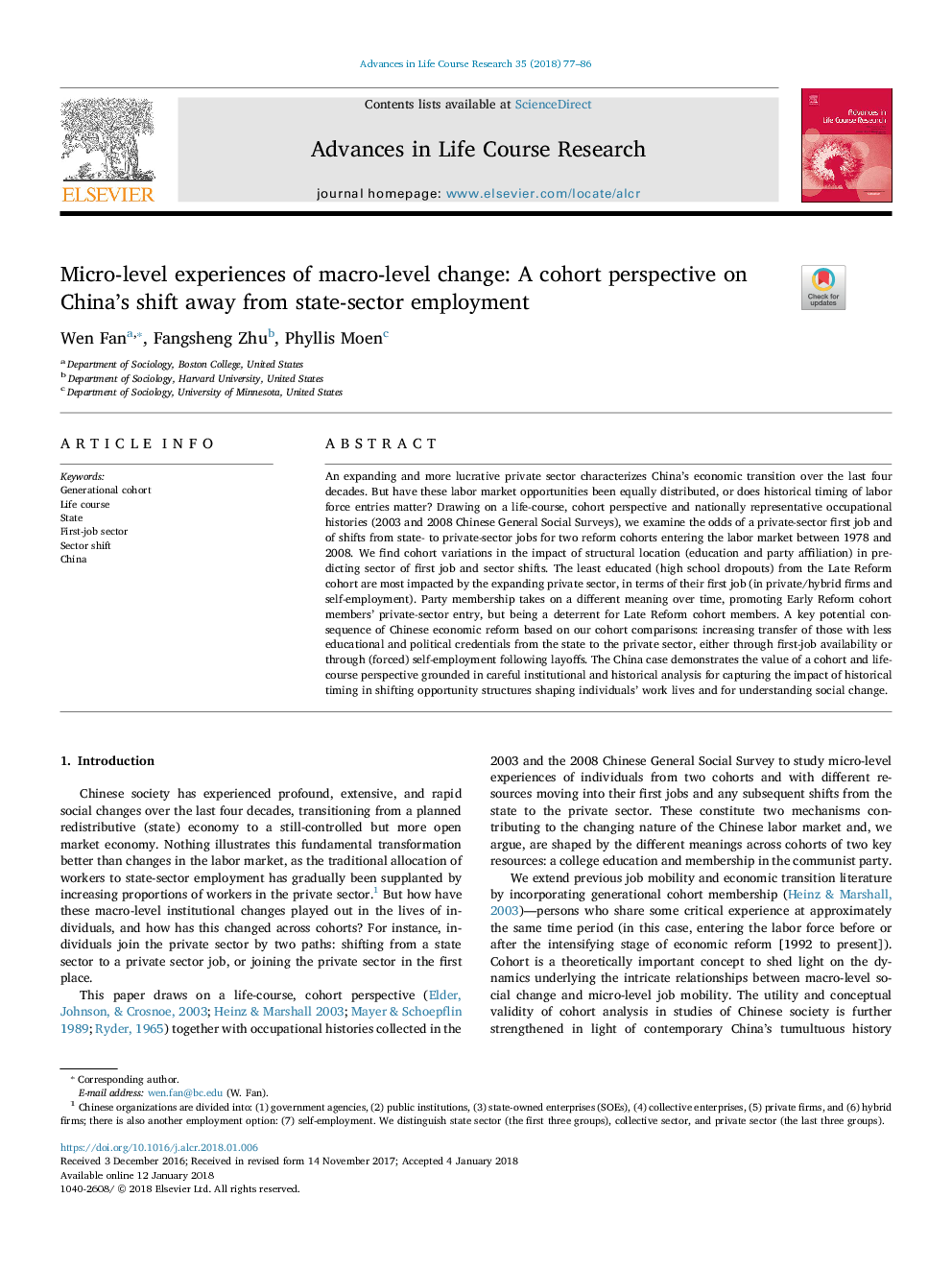ترجمه فارسی عنوان مقاله
تجربیات سطح میکرو در تغییر سطح کلان: یک دیدگاه همگانی در چین چطور؟
عنوان انگلیسی
Micro-level experiences of macro-level change: A cohort perspective on Chinaâs shift away from state-sector employment
| کد مقاله | سال انتشار | تعداد صفحات مقاله انگلیسی |
|---|---|---|
| 102463 | 2018 | 10 صفحه PDF |
منبع

Publisher : Elsevier - Science Direct (الزویر - ساینس دایرکت)
Journal : Advances in Life Course Research, Volume 35, March 2018, Pages 77-86
ترجمه کلمات کلیدی
کوهورت نسلی، دوره زندگی، دولت، بخش اول کار، تغییر بخش چین،
کلمات کلیدی انگلیسی
Generational cohort; Life course; State; First-job sector; Sector shift; China;

